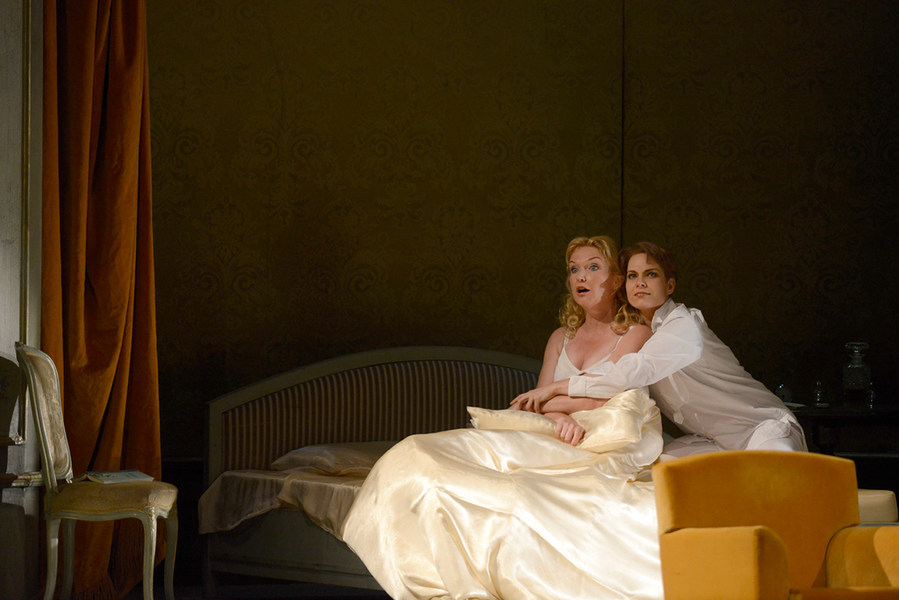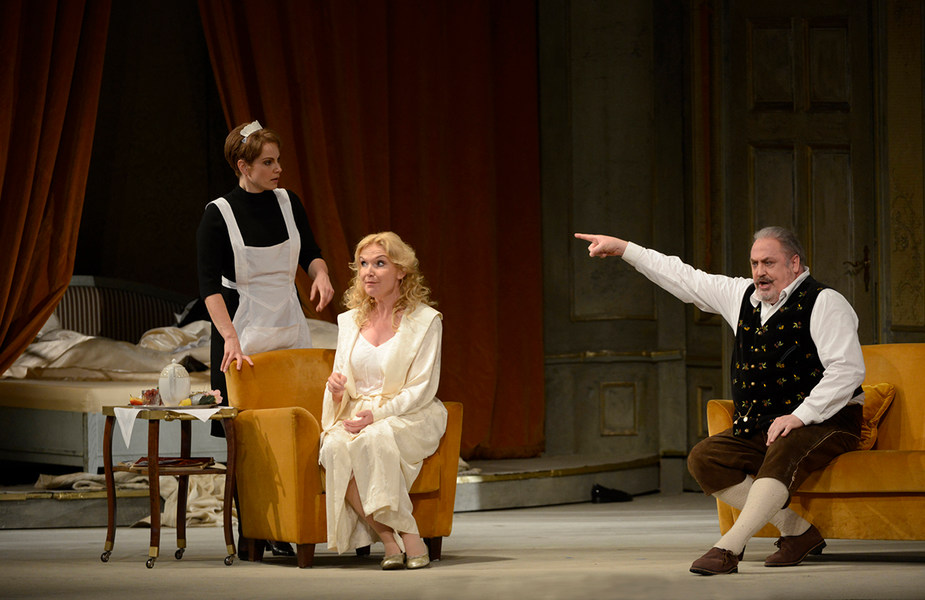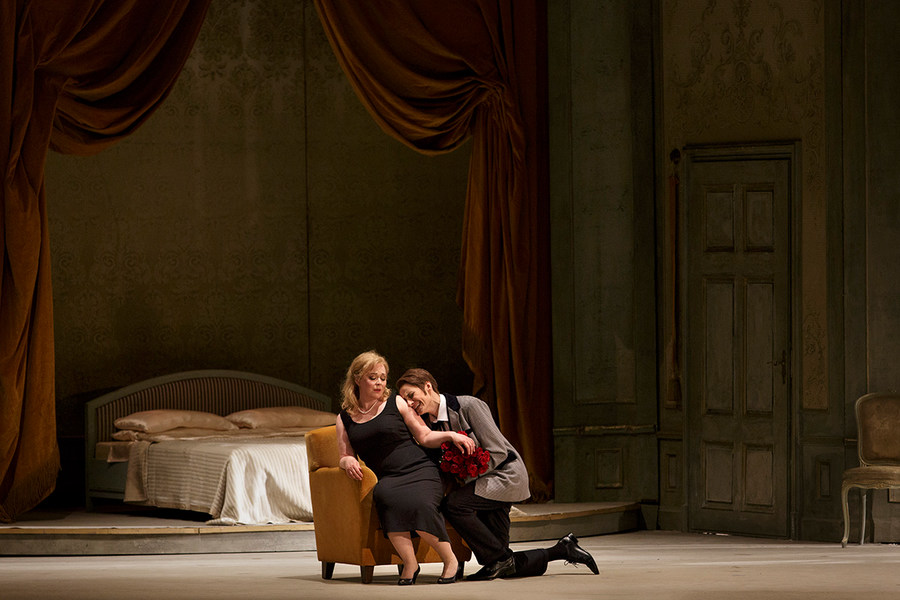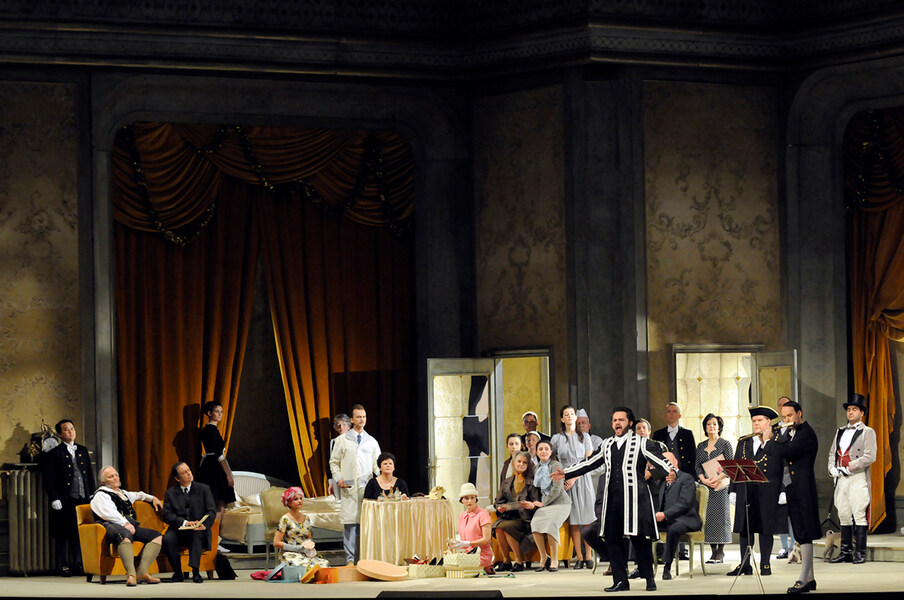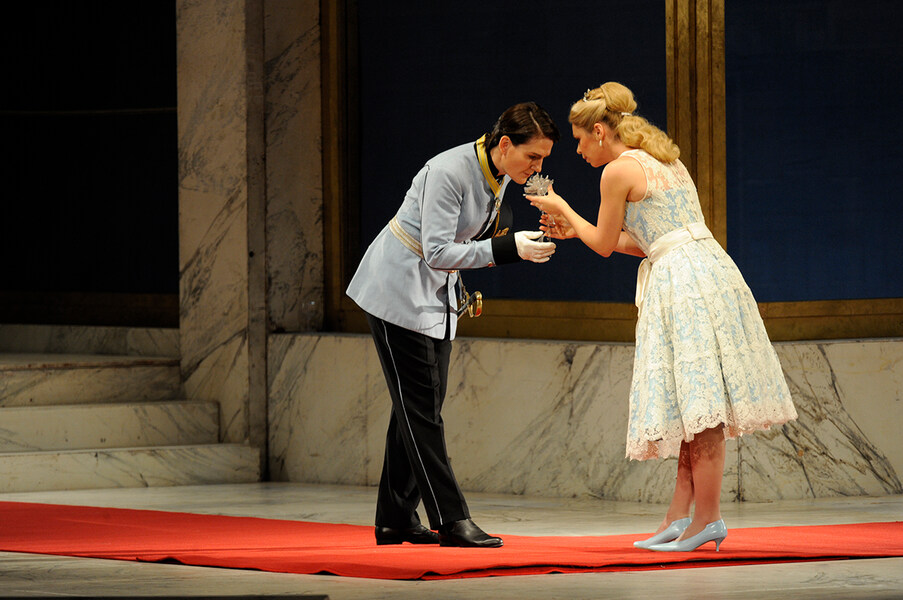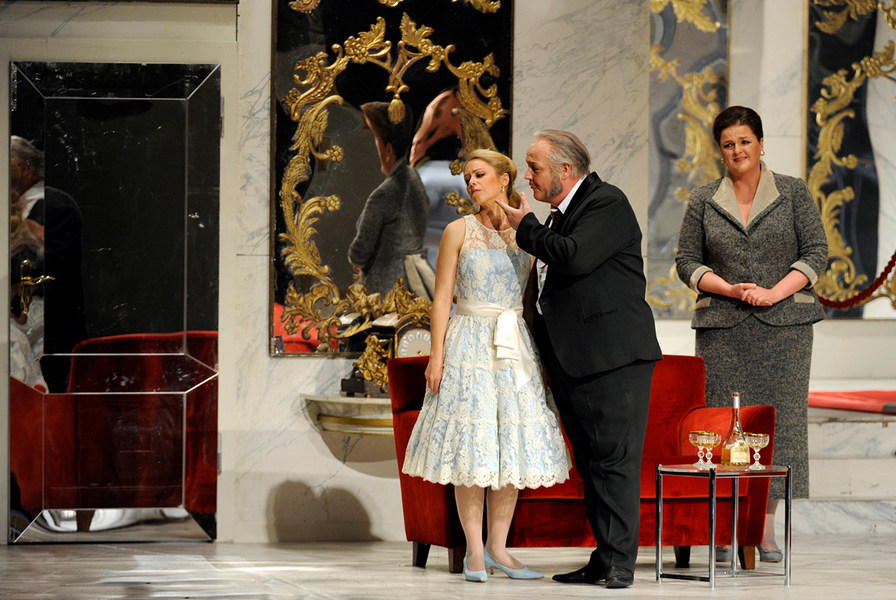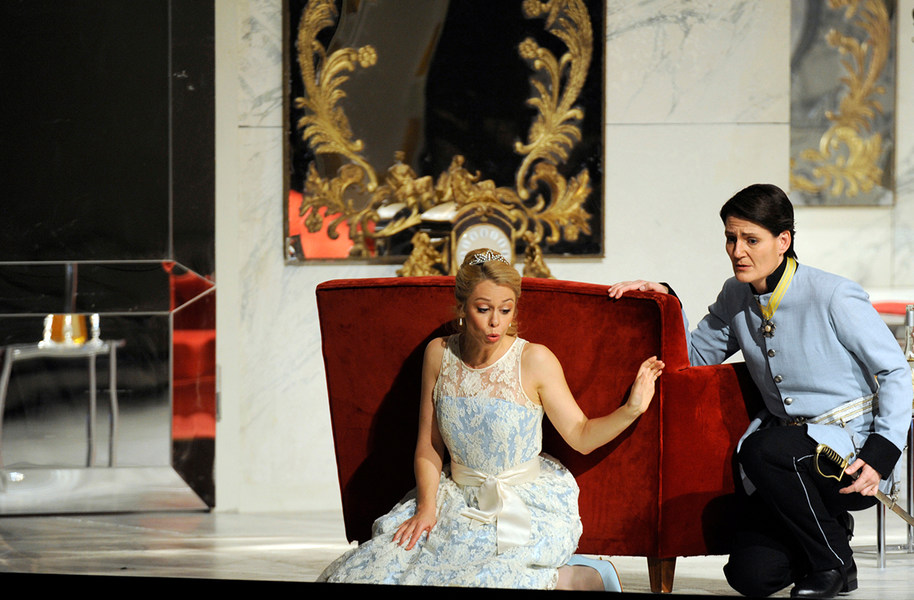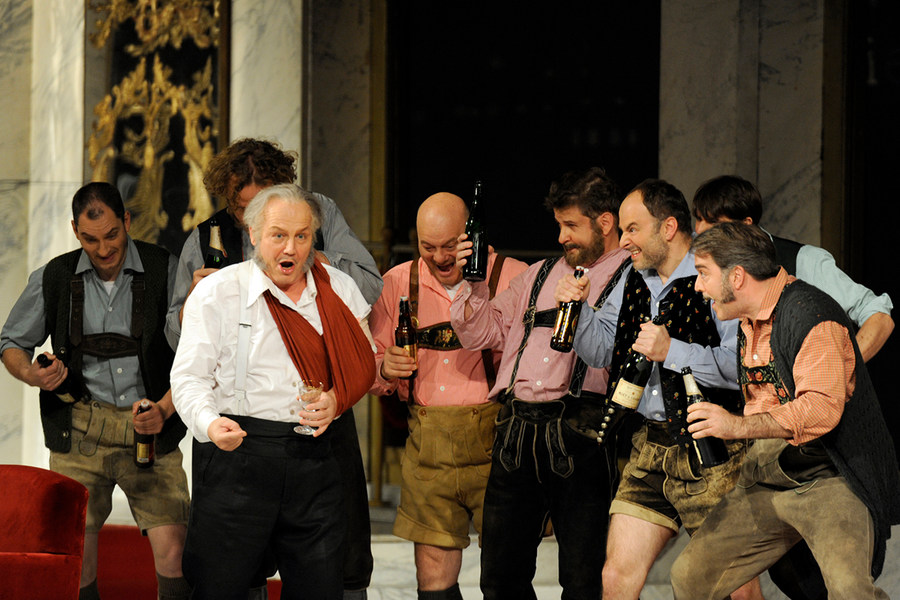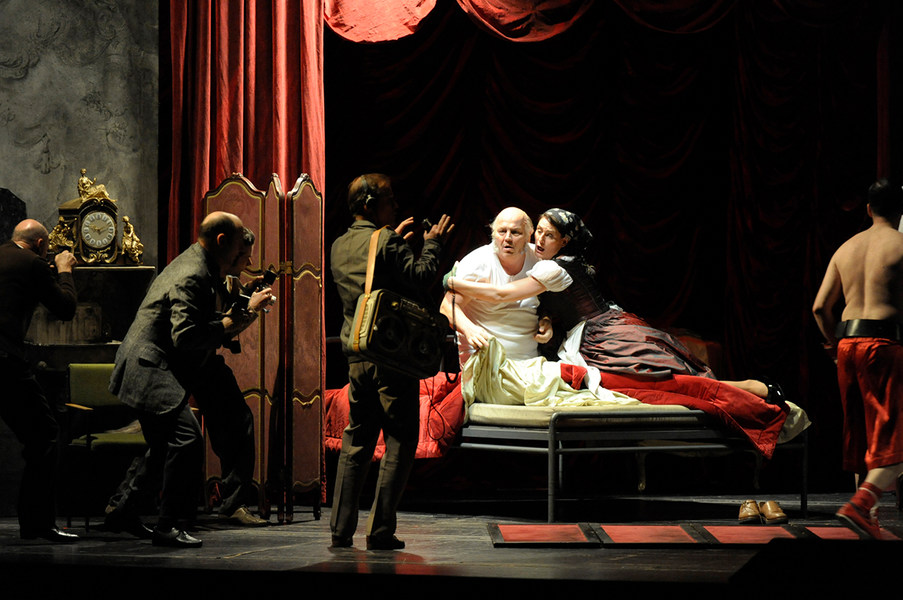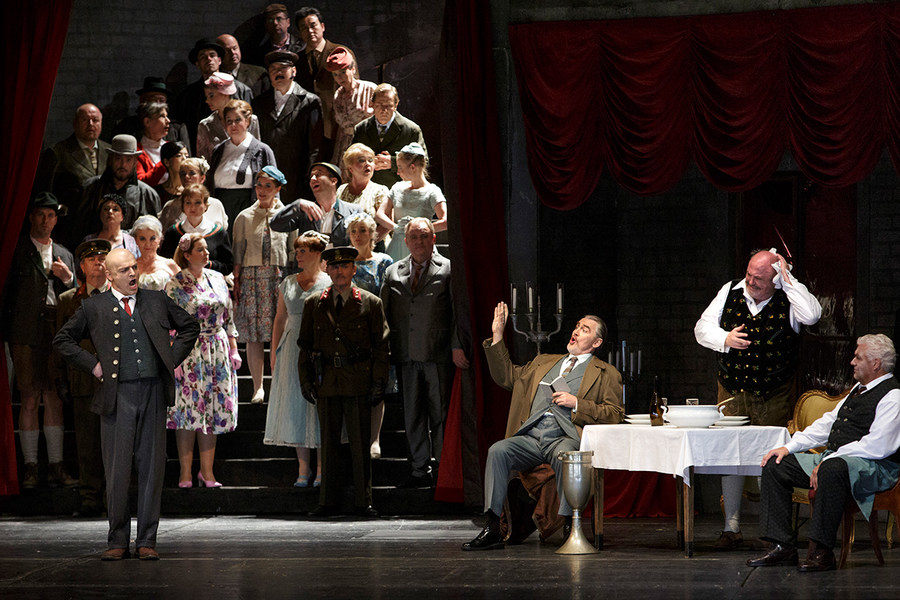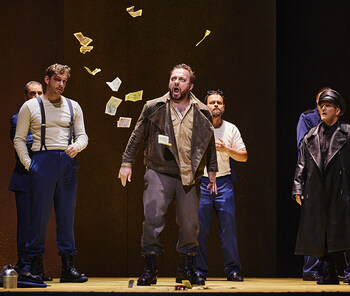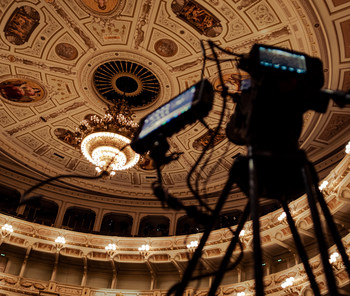Richard Strauss
Premiere 29. August 2000
Performed in German with surtitles
Trailer
Piece-Info
A worldwide hit that originated in Dresden: The Semperoper hosted the world premiere of Richard Strauss’s »Der Rosenkavalier« in January 1911. In this work, the composer and his librettist Hugo von Hofmannsthal welded a sumptuous play on Rococo manners to a melancholic story about the passing of time to create a brilliant »comedy for music«. – The married Feldmarschallin rediscovers her lost youth through her love for the much younger Octavian. Yet she painfully recognises that the march of time cannot be held up. When Octavian is asked to deliver the silver rose on behalf of the dowry hunter Baron Ochs auf Lerchenau, the inevitable happens: The cavalier and the bride-to-be fall in love. The baron is thwarted in his plans by a comic masquerade of Octavian’s devising, and the Feldmarschallin relinquishes her young lover: »I promised to love him rightly«. Uwe Eric Laufenberg’s staging of »Der Rosenkavalier« is a modern homage to the Dresden premiere.
Act 1
Princess Marie-Thérèse, the wife of Field Marshal von Werdenberg, has taken the young Count Octavian as her lover. After a night spent together, the Princess and Octavian are breakfasting in her bedroom, when a noise outside disturbs them. It is not, however, the Field Marshal returning from the Croatian forest, as the Princess at first fears, but Baron Ochs von Lerchenau, her cousin, who forces an entry. Octavian, unable to escape in time, dresses up as a chambermaid and must fend off the advances of the lecherous Ochs, who is quite taken with “Mariandl”. The Baron, intending to consolidate his financial situation by marrying the daughter of the newly ennobled Faninal, a wealthy army supplier, has come to ask the Princess to suggest a “Knight of the Rose” (the “Rosenkavalier” of the title) suitable to Faninal’s rank, who would, according to aristocratic custom, bear a silver rose to the young Sophie von Faninal as a token of Ochs’s troth. On a whim, the Princess recommends Count Octavian. During the Princess’s daily levee, in which she receives artists, secretaries, merchants and petitioners, the Baron argues boisterously with the Princess’s notary, trying to better the terms of his forthcoming marital contract. The Princess dismisses the insistent company, including the Baron, and finds herself alone. Octavian, returning, finds his beloved in a deep melancholy: she senses the merciless passing of time and prophesies to Octavian that he will leave her in favour of a younger woman. Octavian refuses to understand what she means, and leaves in consternation.
Act 2
Final preparations are underway in the nouveau-riche splendour of Faninals palace for the arrival of the “Knight of the Rose”. The presentation of the silver rose by Octavian to Sophie overwhelms both the young people with its fascination – a poetic moment, which is destroyed the arrival of the Baron Ochs. Sophie, appalled by the coarse advances of her bridegroom-to-be, seeks Octavian’s protection in refusing the marriage that Ochs and her father have arranged. The young couple seal their pact with a kiss. But Annina and Valzacchi, a pair of Italian intrigants seeking the Baron’s favour, catch the two young people in their embrace and summon the Baron, whose smug reaction provokes Octavian to all the Baron out. Swords are drawn, and Ochs is slightly on the arm. Faninal, fearing his reputation in ruin, expels Octavian from the house and threatens to send Sophie back to the convent. A glass of wine restores Ochs’s complacent composure. Indeed, the future could not look brighter, especially when Annina – whose loyalties, unbeknownst to Ochs, have now been purchased by Octavian – presents him with a letter promising an assignation the following evening with – “Mariandl”!
Act 3
In the cellar of an inn, Annina and Valzacchi complete the preparations for the staged humiliation of Baron Ochs. During the Baron’s dinner with Octavian as “Mariandl”, strange apparitions disconcert the Baron, who calls the police. But the Commissioner of Police sees Ochs as a debaucher and threatens him with arrest. When Faninal and Sophie arrive, Octavian removes his disguise, and the Baron’s reputation is thoroughly compromised. The Princess von Werdenberg suddenly arrives unexpectedly. The Baron’s game, she tells him, and his forthcoming marriage plans are over. The Baron bows out, but not before trying to bargain with the Princess, when the meaning of Octavian’s initial disguise as “Mariandl” dawns on him. The Princess Sophie and Octavian are left alone, the latter standing helplessly between the two women. The Princess makes Octavian’s decision for him and graciously unites the young couple.
Gallery
Der Rosenkavalier
